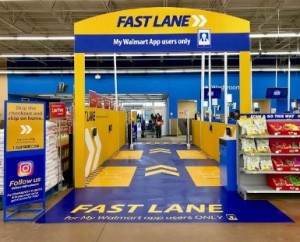Here’s your global payments news roundup for this week. National Retail Federation predicts $16 billion in spending on Father’s Day gifts. 67% of consumers will shop at a retailer with mobile coupons. The payments industry has $2 billion of VC financing so far this year. Checkers restaurant POS suffers malware attack while Visa says EMV cards are gaining ground and preventing fraud.
When it comes to consumer goods, France has the highest online shopper counts at 7.1% compared to 6.3% in the UK. Free delivery doesn’t increase returns, according to researchers. Retailers warn White House tariffs will cost business and consumers more money. US retail keeps ringing up store closures. Walmart is testing Amazon Go-like “Fast Lane” checkouts in Canada. Are you ready for cashless payments and the weekend?
Father’s Day spending will reach record $16 billion

The National Retail Federation (NRF) estimates Father’s Day gift spending in the US should reach a record $16 billion this year. That falls short of the $25 billion spent on Mother’s Day, but it’s still a pretty good day for dear old Dad and a good outcome for US retailers. Read more…
Mobile coupons build loyal customers

If you thought coupons were going the way of pay phones and fax machines, new research from BRP Consulting’s report The Mobilization of Retail may get you to reconsider your bias. Not only are 41% of consumers planning to increase the frequency of their shopping by tablet or smartphone in the next two years, but 67% also say they are more likely to shop at retailers with mobile coupons. Read more…
Payments industry pulling in big VC cash

The $1.9 trillion payments industry is getting a lot of attention and billions of dollars of investment from venture capitalists these days, according to a CNBC report. That makes for a lot of potential new payments industry unicorns on the horizon. Pitchbook Data, which monitors VC investment, says more than $18.5 billion was invested in payments companies in 2018. Another $2 billion is already committed to the industry so far in 2019. Read more…
Malware found in multiple Checkers and Rally’s fast-food locations

Checkers Drive-In Restaurants Inc. said malware was discovered and removed from its point-of-sale system at some Checkers and Rally’s locations. Checkers said 15% of its nearly 900 locations were affected. The timing of the malware exposure varies, with one Los Angeles location infected from Dec. 17, 2015, to March 26, 2018. At a location in Tifton, Ga., however, malware was active from Oct. 13 to Oct. 29, 2018. Most locations were targeted beginning in 2018, with some cataloging a 2016 or 2017 start date. Read more…
Visa says EMV chip cards continue to gain share and cut counterfeit fraud

EMV chip cards continued to gain share of US card payments in early 2019, although their conquest is not yet complete more than three years after the payment card networks’ EMV liability shifts. But Visa says counterfeit fraud is dropping sharply, as intended. Visa reported Thursday that 3.5 million US merchant locations accepted EMV chip cards as of March, up about 400,000 locations from 3.1 million in December 2018. Those locations represented 75% of card-accepting storefronts in March compared with 68% three months earlier. Read more…
France has Europe’s highest share of FMCG bought online

In France, e-commerce accounted for a 7.1 percent share of fast-moving consumer goods (FMCG) sold last year. That’s the highest share in Europe, ahead of a 6.3 percent share in the United Kingdom and a 1.4 percent share in Germany. This is shown in a study by the Nielsen Institute for the French e-commerce association Fevad. France is indeed the number one in Europe, and globally it’s also ahead of the United States, where 5.6 percent of FMCG happened through e-commerce. Read more…
Free delivery doesn’t increase return volume

Online retailers who offer free delivery don’t seem to experience having more items returned to them. Although many consumers often don’t pay for a delivery, when they do return purchases, most of the time it’s not due to free delivery. This can be concluded from a study by Whistl, that looked at the parcel return behavior of UK online shoppers. Six in ten respondents didn’t pay for delivery and despite clothing, shoes and consumer electronics purchases being returned at a higher return rate than all other product categories, this wasn’t due to free delivery. Read more…
Retailers warn of growing tariff bill for American businesses and consumers

The National Retail Federation issued the following statement from Senior Vice President for Government Relations David French in response to the Trump administration’s plans to impose a 5 percent tariff on all Mexican imports starting June 10. “The growing tariff bill paid by U.S. businesses and consumers is adding up and will raise the cost of living for American families. Forcing Americans to pay more for produce, electronics, auto parts, and clothes isn’t the answer to the nation’s immigration challenges, and this certainly won’t help move USMCA forward.” Read more…
Walmart built an Amazon Go-style ‘fast lane’ that allows customers to skip the checkout register — here’s how it works

Walmart Canada debuted a new checkout system called “fast lane” that lets customers avoid cashiers and registers. “Skip the checkout and skip on home,” reads an ad for the fast lane, which is designed for users of the company’s mobile app My Walmart. Just before exiting the store, customers present their mobile receipts to a worker tending the fast lane. Read more…
Retail’s fizzling store count

Perhaps at this point, it might be better to ask which retailers, if any, are not shuttering stores. The data came this week from Coresight Research that store closures across the US continue to mount, touching more than 7,150 locations announced by a slew of firms thus far into 2019. And, of course, we are not even through the second quarter of the year. The pace already dwarves the 5,524 closures that were seen in all of 2018, as tracked by the same firm. That was down 30% from 2017 when store closures totaled 8,139 locations. Read more…








LET’S CONNECT